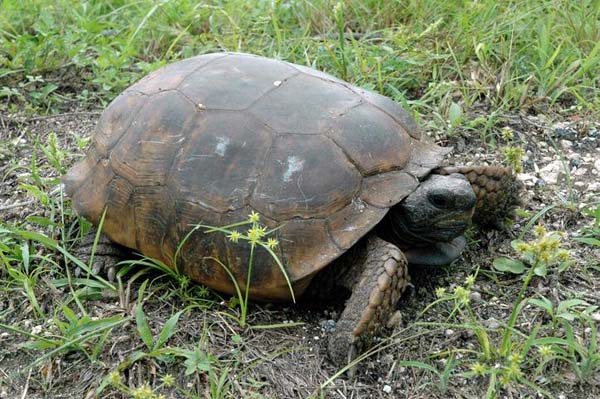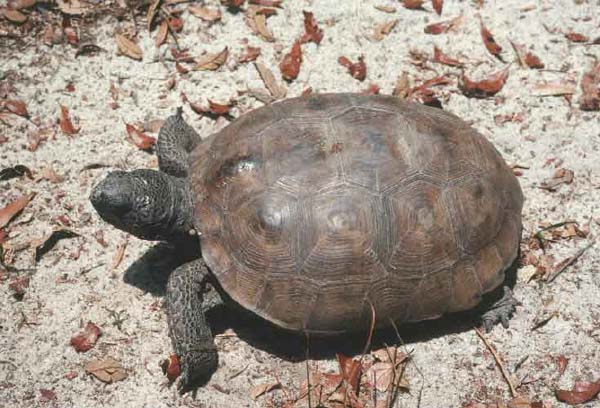Wildlife North America . com North American Animals - mamals, birds, reptiles, insects |
Gopher Tortoise (Gopherus polyphemus)
Gopher tortoise, NASA Kennedy Space Center Photograph by NASA. License: Public Domain. (view image details) 
Gopher Tortoise (Gopherus polyphemus) Photograph by United States Geological Survey. License: Public Domain. (view image details)
GOPHER TORTOISE FACTS
DescriptionThe Gopher Tortoise has a brown, gray or black carapace, and yellow or tan underside (plastron). Hatchlings are lighter in color. Males have a concave plastron, while females have a flat plastron. Males have longer tails than females. Gopher tortoise males have two rounded scent glands under the chin to mark territory. Gopher Tortoise belong to the genus Gopherus - the only genus of tortoises native to North America. Size Average length 25cm. Weight 4kg Environment The Gopher Tortoise spends most of its time in burrows under the ground. The burrows are dug in dry sandhills, flatwoods, prairies or coastal dunes. Food Gopher tortoises are herbivores. They eat mainly grasses. Also eats berries, fruit, and some carrion. Breeding Gopher tortoises mate in late spring, during April and May. The female lays 3 - 15 eggs in a sandy mound near the burrow. The eggs hatch after 70-100 days. Hatchlings reach maturity after 10-15 years of age. Range The Gopher Tortoise is native to the coastal plains of the United States. They are most common in Florida, and are also found in Georgia, Alabama, and Mississippi, south eastern South Carolina. Conservation Status The conservation status in the 2004 IUCN Red List of Threatened Animals is "vulnerable". Classification
Relatives in same Genus Desert Tortoise (G. agassizii) Texas Tortoise (G. berlandieri) Bolson Tortoise (G. flavomarginatus) Home | Mammals | Reptiles | Birds | Insects | Privacy Policy | Disclaimer | Contact Us |